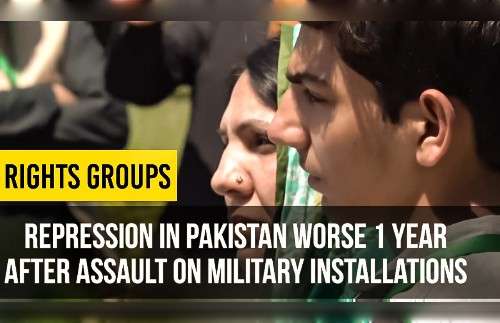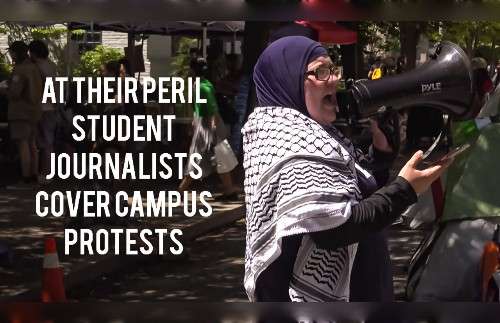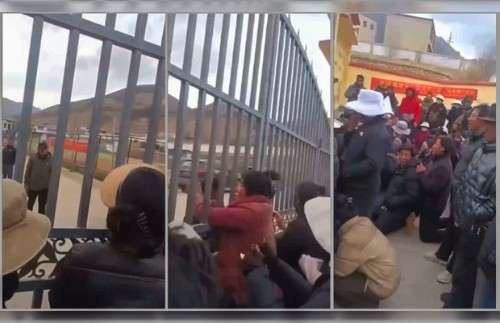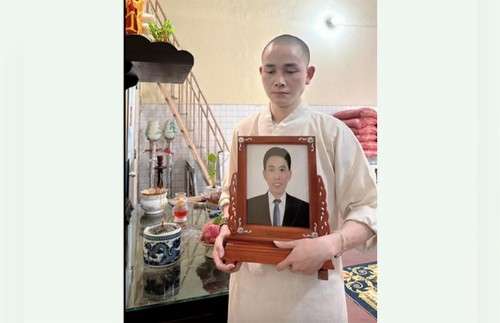Farangis Najibullah RFE/RL’s Uzbek Service

Two Uzbek journalists have resigned from their posts at an online news site after the influential Tashkent mayor was accused of threatening and insulting three reporters.
“Don’t take [our quitting] as a victory, because you ruined the image of the entire government [with your actions],” wrote Bahodir Ahmedov, one of the two Kun.uz journalists, addressing Jahongir Ortiqkhojaev, mayor of the capital city.
“In an era when the rights of journalists are unprotected and the media still remains weak, don’t try to blame Kun.uz” Ahmedov added.
The controversy began on November 16, when an audio recording emerged in which a man — reportedly Ortiqkhojaev — can be heard threatening journalists that he could “easily” make them disappear or made social outcasts by telling people they are gay if they don’t cooperate with the authorities.
Ahmedov’s colleague, Zafarbek Solijonov, shared a similar statement on social media, telling the mayor he had “no right to try to undermine the dignity” of journalists. “There are no winners in this fight,” he said.
“I am a lawyer by profession, working as a journalist. I merely wanted that there was the rule of law in our country,” Solijonov wrote on November 18, the day the journalists announced their resignations.

The resignations came shortly after Kun.uz announced that “all the misunderstandings” between the mayor and the publication had been resolved and published photos of Ortiqkhojaev meeting with Kun.uz staff.
Such a scene bothered the two journalists, considering the threats they had allegedly suffered from the mayor.
“I can do this in just six seconds. I can organize it. Am I making myself clear?” the man in the audio recording says. “You’ll disappear from your homes and nobody will search for you. Nobody! Perhaps, they’ll write that you’ve drowned…. So, you’d better work with us and help us.”
Kun.uz claimed that the voice in the audio belonged to Ortiqkhojaev, a wealthy businessman turned mayor of Tashkent. The mayor’s office and Uzbek prosecutors say they are investigating the audio, which caused angry condemnations on social media.
Kun.uz wrote that in the recording, Ortiqkhojaev was threatening three of the news outlet’s journalists: Rahmatillo Isroilov, Sherzod Egamberdiev, and Ahmedov, during a meeting in the mayor’s office. Kun.uz said it had “no connection” to the publication of the audio on social media.
The man in the audio also threatens to make the journalists social pariahs by falsely and deliberately spreading rumors they are “gays.” “I will make it so that your entire neighborhood will reject you, neighbors will hesitate to talk to you, and your parents will be ashamed. I’ll do it in six seconds. It’s easy for me,” the man says.
He goes on to say that he would put the journalists “into a taxi with gays” and take their photos. According to him, “this is all that it takes” to ruin their reputations.
The man at least once mentions Artel, a company linked to Ortiqkhojaev. Artel is reportedly a key producer of electronics in the Central Asian country. “First, they write negatively about the products manufactured by my factories…. They say Artel is bullshit. Then, when you give them $10,000 a week later and they begin to praise it,” he says. He also calls the journalists “unprincipled, dirty losers.”
Short Temper
According to the Kun.uz report, the conversation took place when Ortiqkhojaev summoned the journalists and other officials from Tashkent’s Olmazor district to help resolve an ongoing conflict between reporters and officials.
Olmazor authorities had previously threatened Kun.uz over an article that criticized the officials, the publication wrote.
“On that day the mayor of Tashkent invited both sides of the conflict to his office to reconcile the parties and resolve their differences,” Kun.uz said. However, “the parties’ unwillingness to reconcile” allegedly made the mayor lose his temper and resort to threats and warnings.
It remains unclear who recorded the audio and shared it on social media.
Uzbekistan’s Prosecutor-General’s Office said on November 17 that it was probing “the authenticity of the recording [and] when, where, and in what circumstances it’s been produced.”
The mayor’s office announced on November 17 that a working group had been set up to thoroughly investigate and “shed light onto the matter.” The statement admitted that the audio “caused a wide public outcry.”
Many Uzbek social-media users expressed outrage and called on the mayor to resign.
Harlem Desir, the OSCE representative on freedom of the media, tweeted the he was “concerned with reports of threats by a high-level official towards journalists.”
“I welcome the prosecutor office’s swift reaction on the matter and hope they will thoroughly look into it and ensure journalists’ safety,” he added on Twitter.
It’s not the first time Ortiqkhojaev has found himself in hot water over his derogatory remarks.
In August, a group of Tashkent residents shared audio they said was recorded during a meeting with Ortiqkhojaev in his office. The residents had asked the mayor to cancel plans to demolish a children’s playground in their neighborhood in order to use the land to build a shopping complex.
In that audio, the purported voice of Ortiqkhojaev can be heard insulting his visitors, including several women. “Sue me in court! Complain to whomever you want! Go to the president, go to God! Go to Brussels with your complaints if you want! Stage a rally if you want!” he says, increasingly raising his voice in the recording.
RFE/RL contacted Ortiqkhojaev’s office for comments at the time, but a press office representative hung up the phone.
Ortiqkhojaev was made acting mayor of Tashkent in April 2018 and officially confirmed to the post in December.
The media environment in Uzbekistan has seen some improvement since President Shavkat Mirziyoev came to power in 2016.
Several imprisoned journalists were freed and some media outlets began to cover sensitive subjects, such as forced labor in the country’s notorious cotton fields. But outright censorship and self-censorship remain prevalent and authorities continue to exercise unfair control over the media.
Written by Farangis Najibullah based on reporting by RFE/RL’s Uzbek Service
Copyright (c) 2019. RFE/RL, Inc. Reprinted with the permission of Radio Free Europe/Radio Liberty, 1201 Connecticut Ave NW, Ste 400, Washington DC 20036
Limited Options for Victims of Myanmar’s Searing Heat
Repression in Pakistan Worse 1 year After Assault on Military Installations:Rights Groups
Ukrainian Priests:Serve Church, Support State
At Their Peril, Student Journalists Cover Campus Protests
Rising Water Levels in Lake Malawi Engulf Communities, Resorts
Safety Reforms in Bangladesh Garment Sector Risk ‘Losing Momentum’
VOA Asia Weekly:The Story of an Exiled Chinese Journalist
Report Warns,Climate Change Set to Cut Average Income by 19%
Our You Tube Channel Promo
For Latest Updates
From Our Archive
We Do Believe that Digital Publication is the Best Way for Communication and Spreading Awareness
















